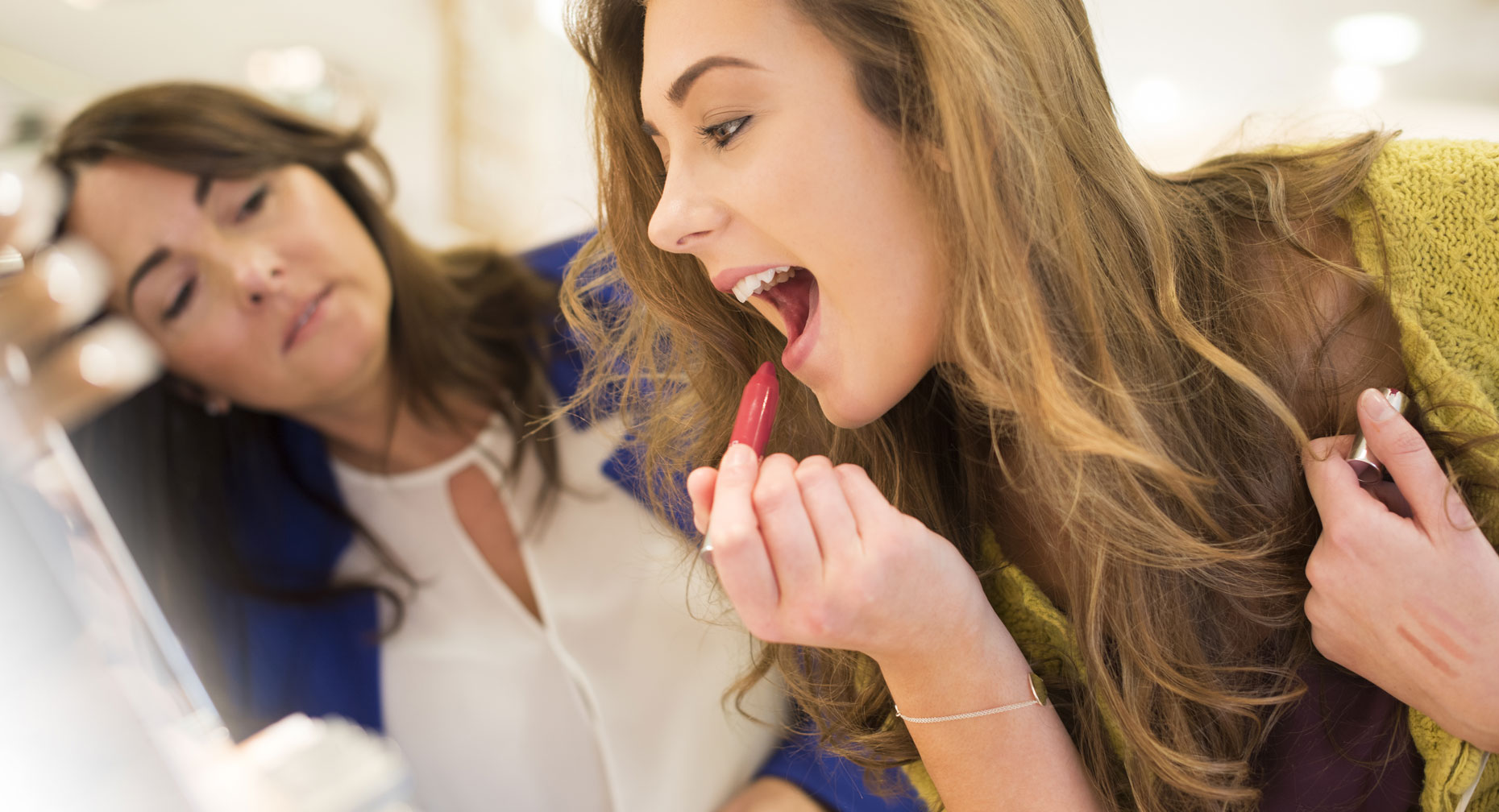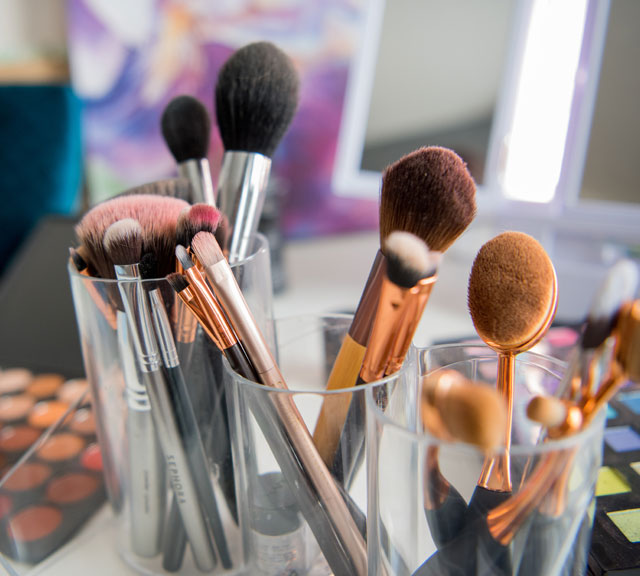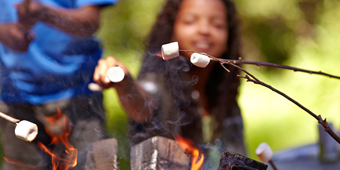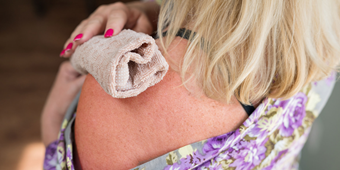Tips to Keep Your Makeup Safe

Find Your Perfect Match
Answer a few questions and we'll provide you with a list of primary care providers that best fit your needs.
Chances are your bathroom counter is loaded with make-up products that you love and use every day – plus a few that you only apply once in awhile.
Ever wonder how long you can safely use those creams, lip gloss and mascara?
There are ways to get the most life out of your cosmetics while preventing infections and contamination.
Know When to Freshen Up
Most cosmetics do not carry expiration dates and may last for years in their unopened packaging.
There are no laws or regulations in the United States that require expiration labeling for beauty products, says the Food and Drug Administration. However, when cosmetics are paired with drugs or medications, like a moisturizer that contains sunscreen or a tinted acne cream, they are considered drugs and FDA rules apply.
These products must be tested for safety and must have an expiration date printed on the packaging.
How long cosmetics will remain safe to use and effective depends on how often you use them, how they’re packaged, how they’re stored and the type of makeup. Products used for the eyes, like mascara, have a shorter shelf life because they are exposed to more bacteria and fungi.
The general rule of thumb is, “when in doubt, throw it out.” Follow these guidelines from Good Housekeeping to know when it’s time to get rid of your makeup:
- Foundation: Six months for liquids; two years for powders
- Mascara: Three months
- Eyeliner and eye shadow: Liquid eyeliner, three months; cream eye shadow, six months; pencil liners and powdered shadow, two years
- Lipstick and lip liner: Lipstick and gloss, two years; lip liner, two years or more
- Nail polish: Two years
- Sunscreen: Six months
- Hair products: One year
- Fragrance: Two years or more
Reduce Makeup Contamination
As soon as makeup is exposed to air, it begins to degrade. Many other factors also cause cosmetics to break down. Examples include:
- Using your fingers to apply make up can introduce bacteria, mold and yeast to the container.
- Mascara applicators are exposed to bacteria every time you use them.
- Moisture, heat and humidity (bathroom environment or storing make up in a car) make it easier for bacteria and fungi to grow.
- Exposure to sunlight and changing temperatures can cause changes in texture, color and smell.
- Over time, products may dry out, crack or harden.
Make-up that comes in a pump is the cleanest because it can be dispensed onto an applicator or into the hand while protecting the unused product still in the container.
How long cosmetics will remain safe to use and effective depends on how often you use them, how they’re packaged, how they’re stored and the type of makeup.
Boost Your Cosmetics Safety

Some of the most serious cosmetic-related health concerns involve your eyes and eye makeup. Old makeup can cause serious eye infections.
One of the best ways to protect your makeup from contamination is to always use clean applicators, such as a disposable sponge or cotton swab.
Follow these safety tips from the FDA:
- Always wash and dry your hands before using and applying makeup.
- Don’t share makeup or brushes with others.
- If mascara dries out, throw it away.
- Keep applicators and brushes clean.
- Properly store your cosmetics, such as tightening lids and keeping them at a cool temperature.
- Don’t buy makeup at flea markets or from online re-sellers.
- If you have an eye infection, dispose of your eye makeup and applicators.
- Do not use any eye cosmetics until irritation or an infection has healed.
- If you have a cold sore, shave off a layer of lipstick and lip liner to prevent reinfection.
- Expired mascara often smells funny, so smell your mascara when you first open it so that you can recognize any changes.
Another safety option is to use a device like Timestrips. These small bands of tech affix to your makeup and record when you open a new makeup product. Timestrips then start a count down for three or six months, to remind you when it’s time to throw away your makeup.
Unsure if Your Product is Useable? Pitch It!
Natural makeup products are very popular and can be gentle to the skin. These items are often made with botanical ingredients, which tend to have a shorter shelf life.
Some cosmetics makers do test their products to check how long they remain safe and useable under normal conditions and to determine how changes in temperature and humidity affect the make up.
These companies are not required to share this data with the FDA. You can, however, contact the manufacturer directly to ask for more information about their product testing.
To stay safe, you should keep in mind that expiration dates or use-by dates are only rules of thumb. The quality of certain cosmetics, sunscreens and acne creams can decline sooner if the items are not properly stored.
Find Your Perfect Match
Answer a few questions and we'll provide you with a list of primary care providers that best fit your needs.
Source: Food and Drug Administration; Good Housekeeping; Cosmetics Info




